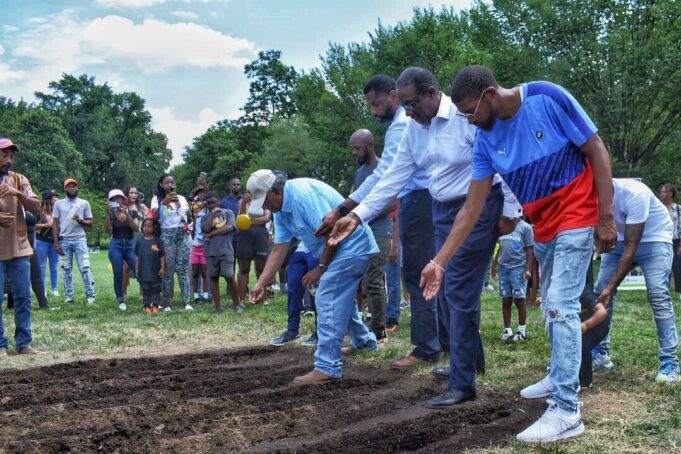The last two years more Blacks and Hispanics didn’t know where their food was coming from, according to official government data. With Covid 19 pandemic created job losses, illnesses and other problems, families headed to long lines at food banks.
The problem was worse for neighborhoods suffering from “food apartheid,” or systems that led to and maintain a lack of grocery stores, access to healthy food and food insecurity. Hunger relief programs and things like stimulus payments generally kept food insecurity rates flat, said experts. But the problem worsened for Blacks and Latinos, and government researchers are still trying to figure out why.
Black organizations are not waiting for answers. They are creatively responding to the problem in different ways.
“In the midst of a pandemic, we saw a couple of different, really unique things that were happening. We’ve been in a food apartheid for quite a while,” said Jaren Hill-Lockridge, director of The Well at Oxon Run, which is a Washington, D.C.-based organization.
The Well came out of a three nonprofit collaboration, D.C. Greens, The Green Scheme, and Friends of Oxon Run. They joined efforts with the D.C. Department of Parks and Recreation and the D.C. Department of Energy and Environment to deal with healthy food and food access in the city.
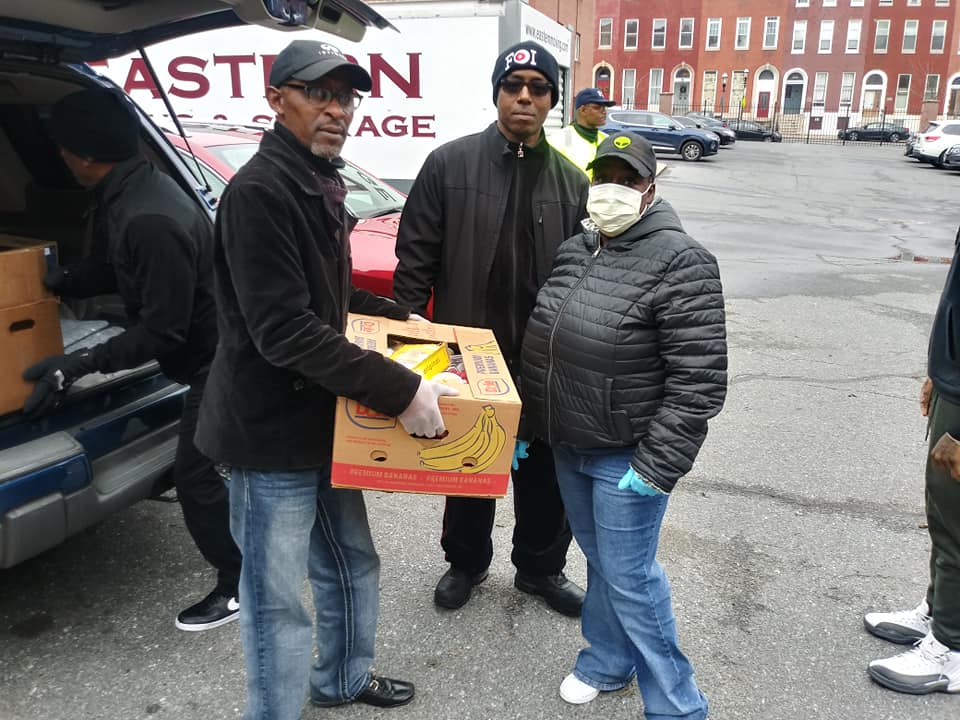
Ms. Hill-Lockridge said the group saw an unexpected abundance of food, fresh produce, during the pandemic. It was a pleasant surprise but how much was it helping? “Where did all of this come from? We hadn’t been educated on what to do with fresh produce. I saw a lot of food going to waste,” said Ms. Hill-Lockridge. So they set out to connect with small businesses for spaces to grow food and do some education on nutrition education and using food as medicine.
“It’s one thing to make the food available, but if we don’t know what to do with the food, it doesn’t make any sense,” Ms. Hill-Lockridge said.
“The Well will be a space where all kinds of food things happen for our community. Whether it’s fish and fries on Friday, Soulful Sundays, or Meatless Mondays,” she added. “We want to offer cheaper prices for produce to the small businesses in our neighborhood too.
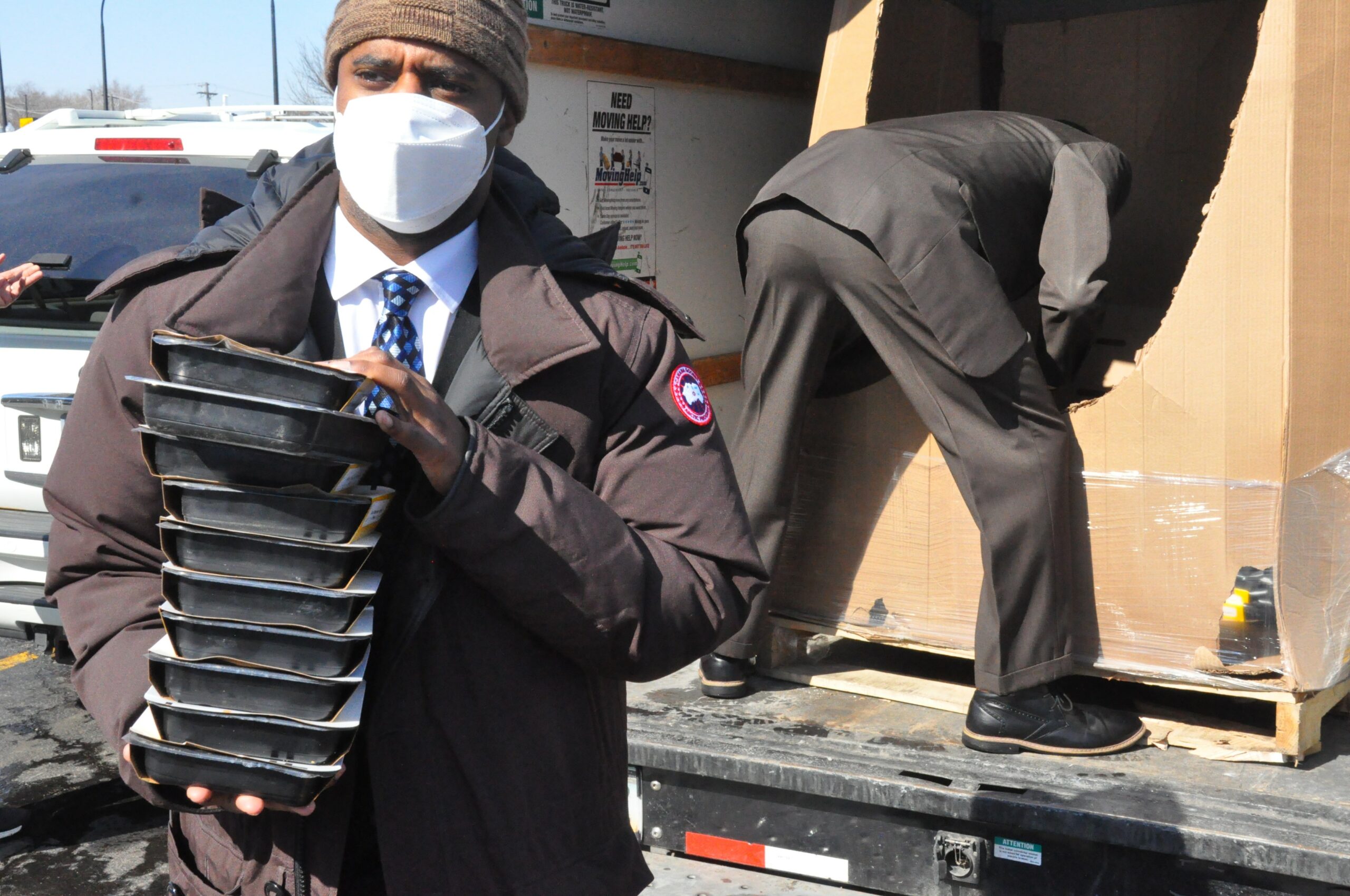
Say that they’re used to buying tomatoes for $2. We might sell it to them for a $1.75, because we’re just really trying to reduce the overhead costs and again increase food access in a number of ways.”
The Well is based in the city’s Blackest and poorest ward which has lacked supermarkets and good food. Councilmember Trayon White backs the work of D.C. Greens and The Green Scheme “combating the food desert inequities in Ward 8.”
“This is the beginning of a movement we are embarking on and I look forward to this one-of-a-kind holistic approach to life in the great Ward 8,” he said.
In Ward 8, there are only two grocery stores for more than 70,000 people, who are 91 percent Black, according to census figures. Across town in Ward 1, which is 58 percent White with more than 91,000 people, there are nine grocery stores.
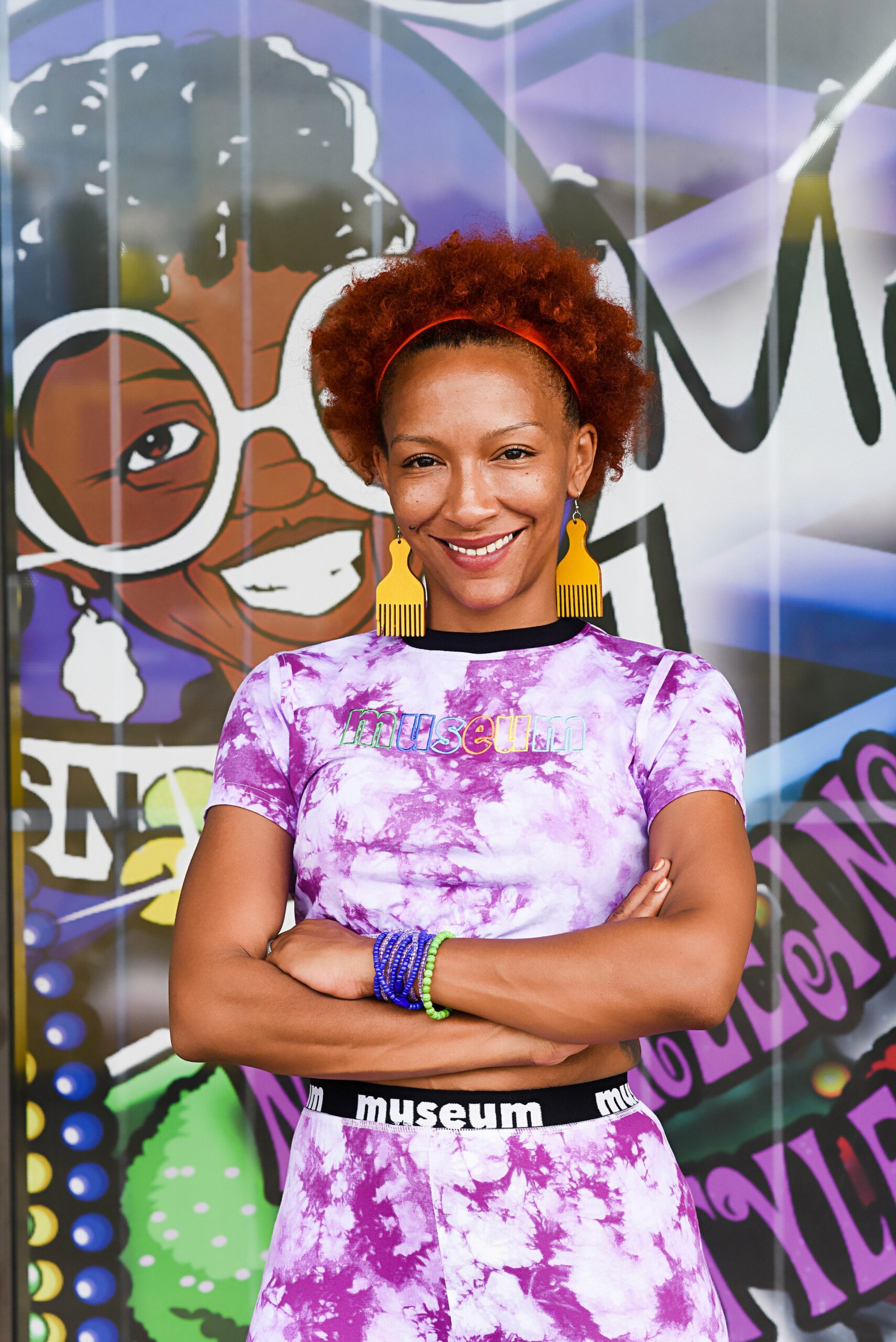
The Well at Oxon Run is Ward 8’s Innovative Urban Farm and Wellness Space. It includes 50,000 square feet of city land dedicated to urban agriculture, with plans to grow 150 varieties of produce, herbs, and edible flowers for residents. Along with pick-your-own flower gardens will be a farm stand, classroom, performance space, and a memory forest honoring victims of gun violence. The first planting is scheduled for 2022.
“Grow food where you’re at,” advised Tosha Phonix, a fighter in the quality food battle. And, she adds, connect with Black farmers and consumers, work together for success.
“If you don’t know how to grow food, find an urban Black farmer in your area and get your food,” she said. “This notion that Black people in urban and rural areas are different, it’s not true. That’s another divide-and-conquer method and I’m working to break that because urban farmers and old rural farmers—they’re like three to four generations in.”
Ms. Phonix got involved when she started shopping years ago at Yours Market, a Black-owned, community-based supermarket located in St. Louis. She launched a Food Equity Advisory Board and Elevating Voices of Leaders Vying for Equity (EVOLVE) to provide Black farmers with grants and business resources.
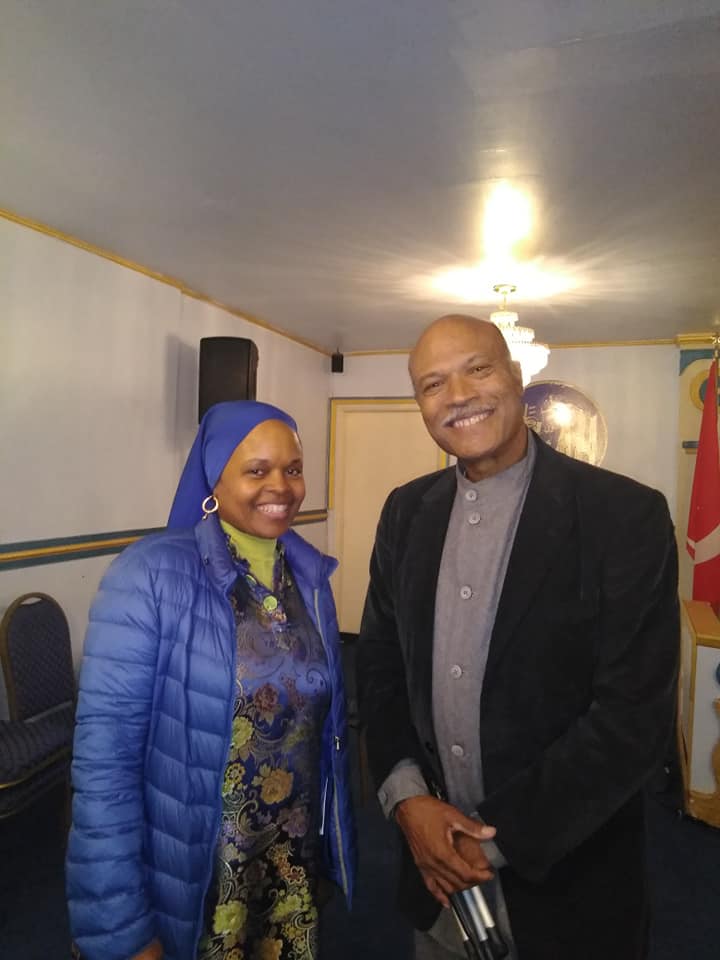
Melody Muhammad lives in Philadelphia but owns Edith Family Farms in North Carolina. She has been learning to grow food, growing food and teaching youth about urban farming and food for about eight years.
Edith Family Farms includes seven acres to cultivate and grow food and educate people about how to farm. She believes the pandemic pushed more Blacks to live more sustainable lives and grow their own food.
Unity, planning and learning from others are necessary with urban farming and rural farming because Blacks must depend on one another, added Melody Muhammad, a longtime city girl.
Dr. Ridgely Muhammad, who oversees thousands of acres of land that belong to the Nation of Islam’s Muhammad’s Farms is often a consultant as Black efforts to buy land and farm grow.
The New Black Wall Street, a major Black-owned mall in Atlanta, has Muhammad Farms products in their grocery store and Ridgely Muhammad connected other Black farmers with the mall.
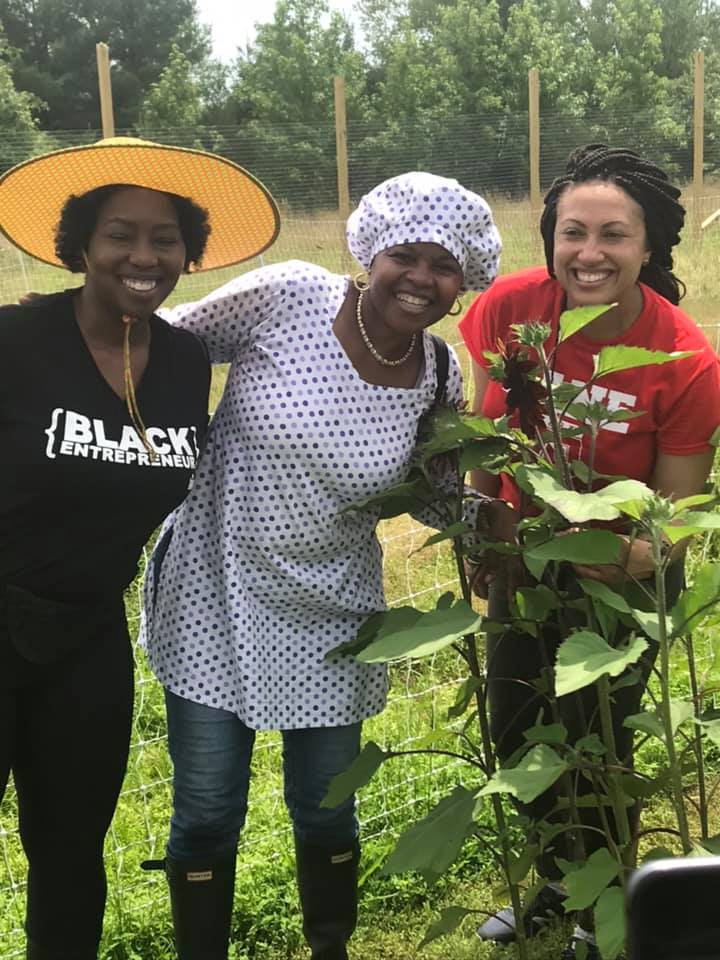
Black farmers are also setting up farming co-ops with some bypassing farmers markets and contracting with businesses and upscale restaurants, he explained. Blacks are also buying food trucks as another way to take their products directly to people and to get into the business of feeding people, Dr. Ridgely Muhammad said.
Jackson Henderson bought a food truck on a whim, using money left to him by his grandfather as an inheritance. He eschewed buying a restaurant franchise in favor of a food truck similar to those he saw in downtown Charlotte, N.C., where crowds gathered daily.
And he said, “I liked the freedom they offered. I can take my truck to my regular spot during the week and to festivals on the weekends. My grandmother’s chicken and rice recipe is a big hit. I came up with a special sauce that people seem to like also. Charlotte has lots of summer festivals so business has been good. My first year was a little shaky. I was just getting started but once I got the hang of it and got my wife and children involved things have been going well.”
Along with buying land, growing food, owning food trucks, selling to restaurants and doing farmers markets, there is the simple need to feed people who need to eat.
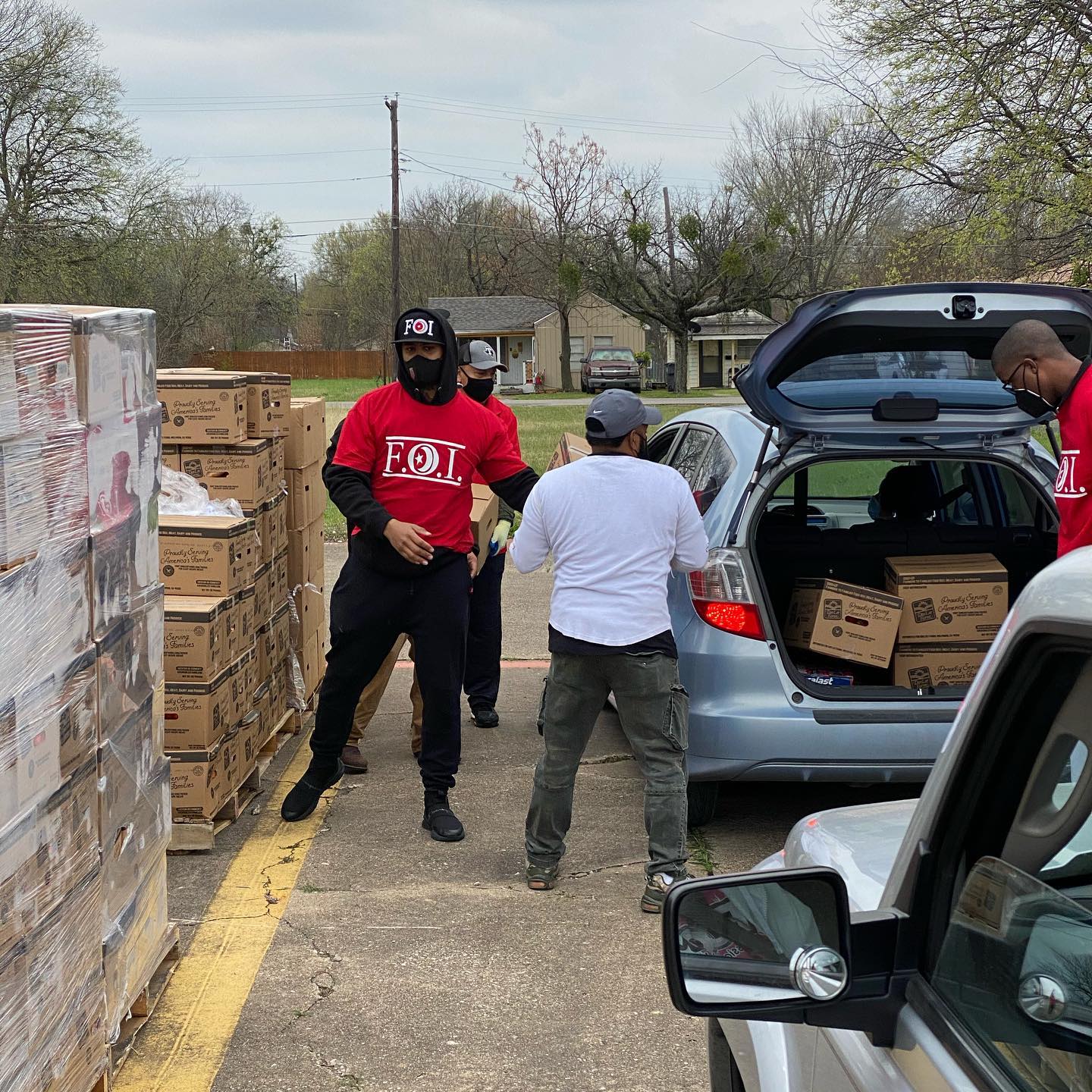
Student Minister Jalil X of Muhammad Mosque No. 53 in Flint, Mich., has seen the need—and responded to it. According to a 2020 study by the Center on Budget and Policy Priorities, Black and Latino adults were twice as likely to report their households did not get enough to eat compared to Whites. Another 2020 study by Feeding America said with the pandemic, 24 percent of Blacks could not guarantee when they would eat.
Student Min. Jalil X, part of the 10,000 Fearless initiative called for by Min. Louis Farrakhan of the Nation of Islam to make Black neighborhoods safe and decent places to live, helps give away 2,500 pounds of food a week. Between 6,000 to 10,000 pounds of food is expected to be given away between Thanksgiving and Christmas season, he said.
Father Michael Pfleger of St. Sabina Church sees the same struggle in Chicago. “A lot of times people are lined up an hour before just to get vegetables,” he said, referring to church food giveaways. “The food that is offered in the community is mostly unhealthy so we shouldn’t be surprised that people are not eating healthy and have preexisting health conditions,” he added.
That’s where Stein Learning Gardens comes in, he continued. The garden project works to help bring higher quality foods to the community and teach people, especially youth, to feed themselves.
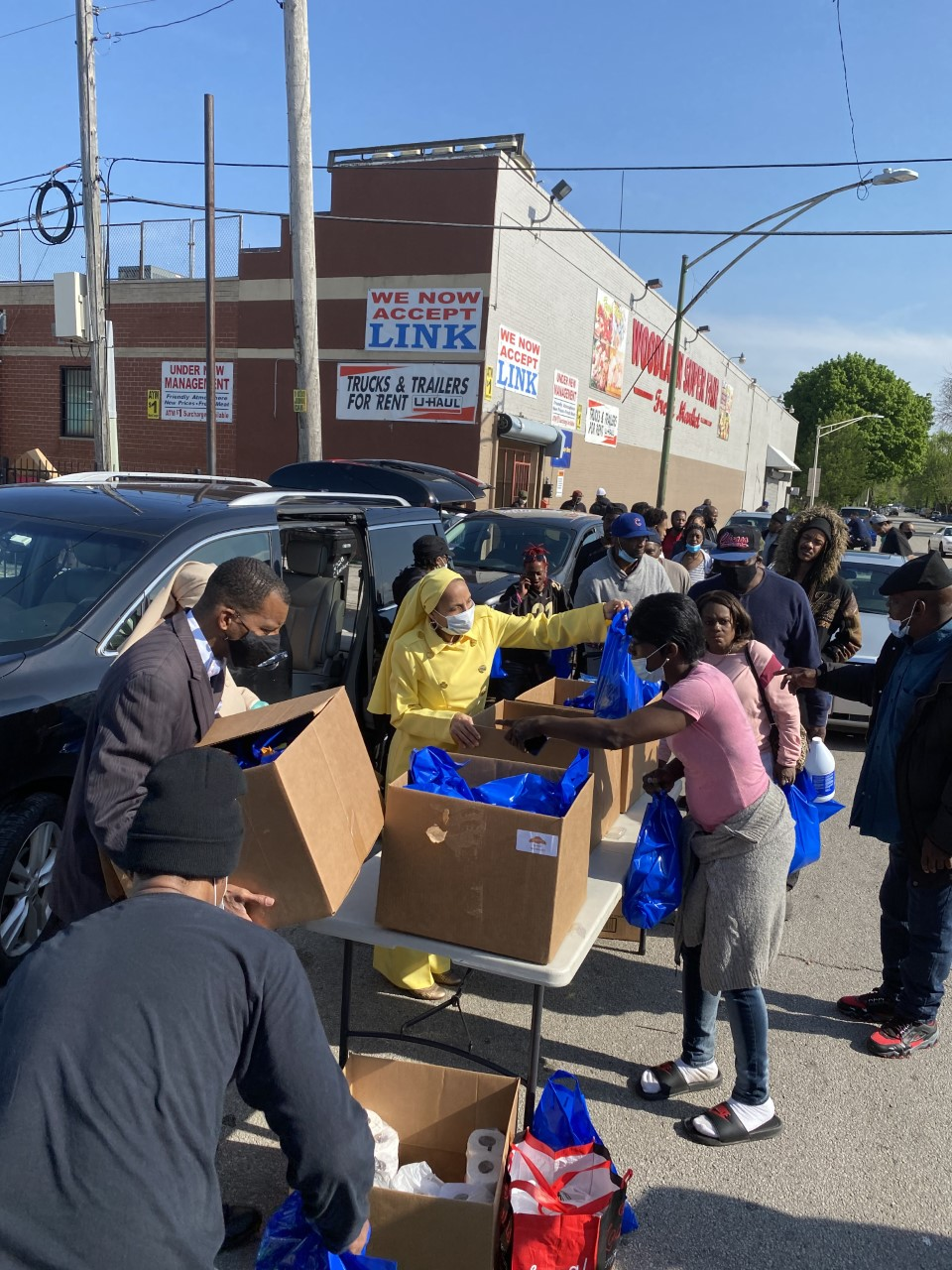
“Every young person that comes through our school and youth center has to take a class at the Stein Learning Gardens. We encourage them to go home and educate their families on healthy eating. I absolutely believe it is important and it is a tool, but at the same time I do not think that we should let the city and food stores off the hook,” he said.
In Baltimore, We Our Us responded to the pandemic by feeding people in two locations in the city twice a week. That was in 2020 and since then the lines of families have only grown.
“We have been consistent in feeding our community because of the consistency of our partners in providing us with food,” said Andrew Muhammad, the head of We Our Us. Working with partners who deliver food, We Our Us gets the food out. Before Thanksgiving, the group did traditional outreach. But, Andrew Muhammad, said, “People continue to suffer. We had 300 turkeys but could have given out so many more.”
—Tariqah Muhammad, Nisa Islam Muhammad, Final Call Staffers
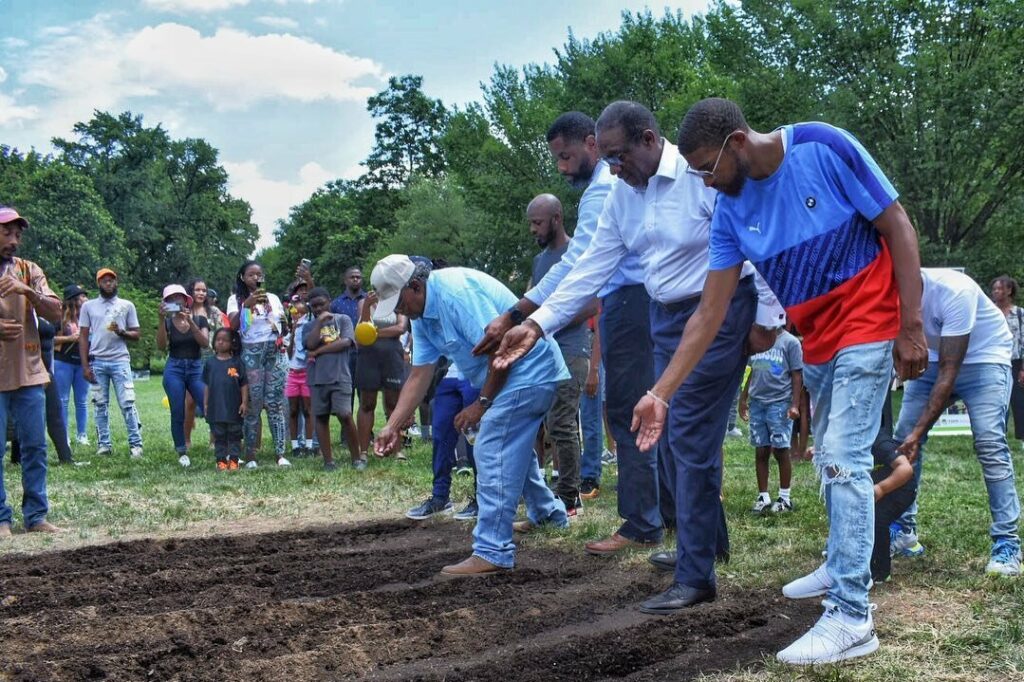
The Well at Oxen Ron Photo DC Greens 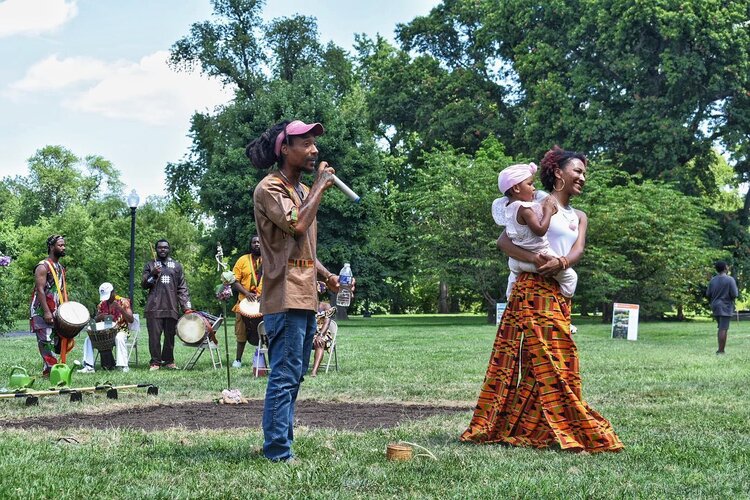
The Well at Oxen Ron2 Photo DC Greens 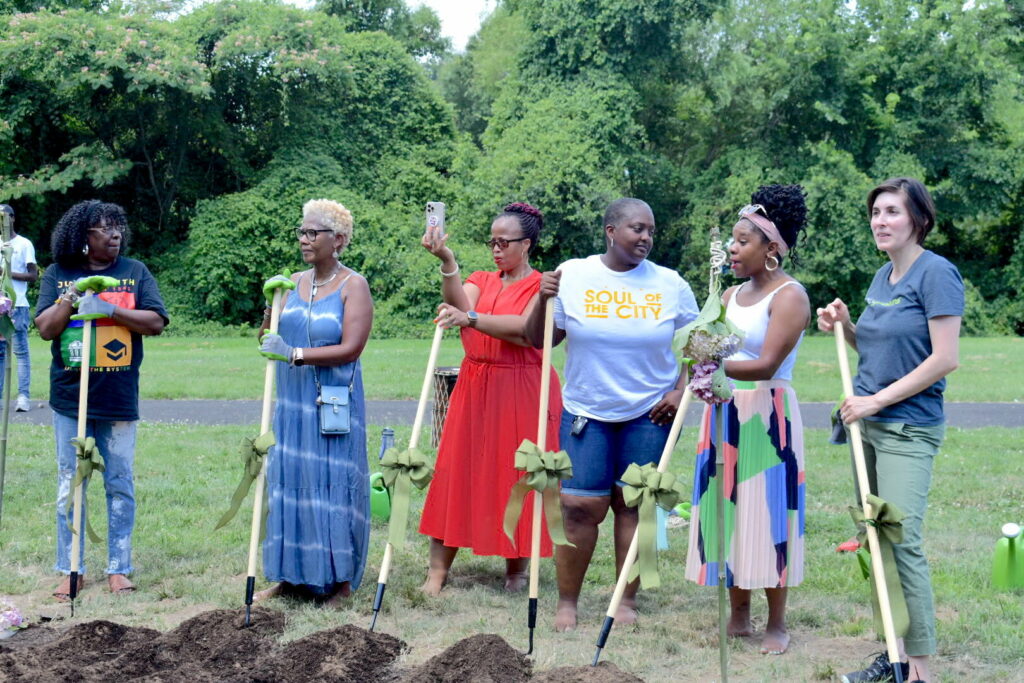
The Well at Oxen Run3 Photo DC Greens












